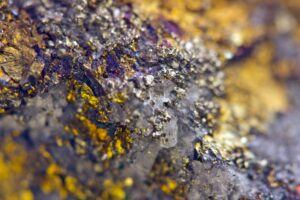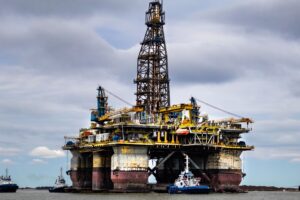Shell is present in more than 70 countries worldwide using leading technology and its innovative approach to develop a more sustainable energy future. For Shell, its primary mission is to meet the energy needs of society in a manner that prioritizes the economic, social and environmental impact of energy generation, now and for the future. One of the key focuses for its developments over the last 50 years has been in Nigeria, where Shell has been at the forefront of the country’s oil and gas development. With almost 90% of Nigeria’s export income, and 75% of the country’s overall government revenue coming from the oil and gas sector, Nigeria, with the help of Shell, is primed to deliver significant energy for the country for many years to come.
Check out the article in the magazine below:
Shell has been in operation in Nigeria for more than 50 years with its first developments beginning in 1937. Over the years, Shell has been vital in delivering pioneering onshore, shallow and deep-water oil exploration and production projects. These projects are delivered by one of the four subsidiary companies as part of Shell Companies in Nigeria which collectively contribute majorly to the economy thanks to the energy they produce and the revenue this generates for the country. Aside from the development of energy, these companies are also vital in supporting the supply chains, local content and social investment of the country’s energy industry.
The largest Shell company in Nigeria is Shell Petroleum Development Company of Nigeria Limited (SPDC), a joint venture between Shell and the government-owned Nigeria National Petroleum Corporation (NNPC). As part of the SPDC JV, NNPC holds a 55% share, with SPDC holding 30%. The remaining shares are owned by Total E&P Nigeria (10%) and ENI-owned Agip Oil Company Limited (5%). SPDC was responsible for producing the country’s first commercial oil exports in 1958. Today, the joint venture is focused on onshore and shallow water developments to produce oil and gas in the Niger Delta, with assets spanning 50 oil-producing fields. Across these assets, SPDC JV has a network of 5,000km of oil and gas pipelines and flowlines, 5 gas plants and two major oil export terminals.
For deepwater oil development, Shell holds 100% interest in Shell Nigeria Exploration and Production Company (SNEPCo) which has focused its development primarily on the Bonga Field. Across the Bonga field, Shell is responsible for the production of more than 200,000 barrels of oil per day (bpd) and 10 million standard cubic feet of gas per day (mmscf/d). As the first deepwater development for Nigeria’s oil and gas sector, Shell has played a key role in pioneering this industry for the country, which in 2005 saw Shell increase the country’s offshore capacity in Bonga. Today, almost a third of Nigeria’s deep-water production comes from the Bonga and Erha oil fields, reaching depths of more than 1,000 metres.
In 2014, SNEPCo continued its expansion of the country’s deepwater developments with the establishment of additional deepwater developments in Bonga North West. These offshore deepwater projects have been vital to the social and economic development of Nigeria, with the developments delivering much-needed employment, training and business opportunities for local people. In fact, the Bonga Field developments have helped establish the first generation of Nigeria’s oil and gas engineers with experience in deep water development.
For gas development, Shell Nigeria Gas (SNG) is the only international oil and gas company established as a gas distributor to industry customers across Nigeria. SNG, incorporated in 1998, has spent more than 25 years focused on the downstream distribution of gas to industries across Nigeria. The company provides manufacturing and industrial customers with access to a clean, reliable and low-cost alternative to liquid fuel. To achieve this, SNG operates a growing world-class gas transmission and distribution network spanning 138km of the country. In recent years, SNG has been focused on a growth phase, and so in recent years has expanded its gas distribution capacity by over 150%. Its network is now able to distribute over 150 mmscf/d of dry processed gas to more than 300 industrial customers nationwide, with more than 100 industrial customers already connected to its gas grids.
To help support SNG’s networks, the company has built strong relationships with virtual pipeline operators, which are focused on developing compressed natural gas and mini-LNG grids across the country. By working closely with these operations, SNG can continue to deliver vital energy infrastructure to meet the needs of the country, and in turn bring more social investments into the local communication through its value chains, revenues and employment opportunities. For this reason, SNG has established itself with a firm identity as a safe and credible gas distributor.
The final company operating under Shell Companies in Nigeria is Nigeria LNG Limited (NLNG). The company is a joint venture with Shell holding 25.6% share, and NNPC, Total E&P Nigeria and ENI holding 49%, 15% and 10.4% respectively. The focus of its operations centres around the NLNG Plant on Bonny Island, where the facility has 5 processing units with a total processing capacity of 22 million tonnes a year of LNG. In addition to this, the facility can produce up to 5 million tonnes of natural gas liquid (liquefied petroleum gas (LPG) and condensate). The facility is responsible for powering more than 200,000 homes and businesses on Bonny Islands, through a rural electrification scheme, Today, NLNG accounts for approximately 7% of the world’s total LNG supply, highlighting the valuable role Nigeria and Shell play in delivering this vital energy to market for a more sustainable future.
In recent months Shell completed the sale of SPDC to a consortium called Renaissance for $1.3 billion. The divestment of SPDC is set on helping Shell simplify its presence in Nigeria, through its exiting from the onshore oil production in the Niger Delta. Instead, its focus for the future would remain on investing and developing Nigeria’s deepwater and integrated gas positions. Renaissance, renaming SPDC to Renaissance Africa Energy Company (RAEC), will therefore take over Shell’s previous 30% stake in the joint venture, leaving the company now owned by Renaissance, NNPC, Total E&P Nigeria, and Agip Energy.
Across Shell’s operations in Nigeria, there is a keen focus on making the most of the country’s oil and gas reserves to serve the people and economy of Nigeria. With every aspect of the oil and gas development sector focused on delivering vital resources, Shell continues to invest in people and businesses across Nigeria delivering a better future for the country both now and in the future. With the announcement of the divestment of SPDC to Renaissance, we look forward to seeing how Shell will continue to expand its deepwater and integrated gas positions across Nigeria to deliver vital resources for the future of energy development.








